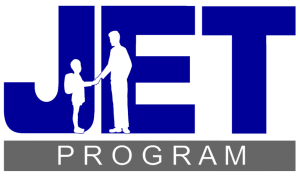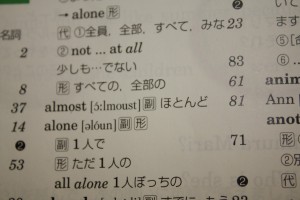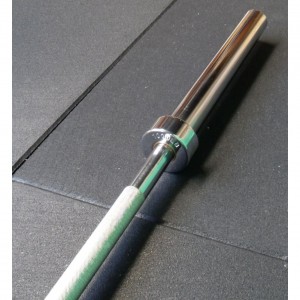ALTs expectations high school junior high school SHS teaching
by sendaiben
leave a comment
Updating the ALT Playbook
A list of dos and don’ts for ALTs and other language teachers
I read Baye McNeill’s excellent book Loco in Yokohama a few weeks ago, and thoroughly enjoyed it. It’s a great read and it took me right back to my days teaching in junior high school as a first- and second-year ALT on the JET Programme.
It also reminded me of what I used to do in the classroom back then.
Like many ALTs, I came to Japan with little teaching experience (I had taught a couple of classes and done some tutoring in China). I received minimal training and very little supervision from my colleagues and supervisors, both in the school and in the local board of education. I got a lot of advice from other ALTs and just muddled through.
Thinking back now I can think of many ways I could have been more effective and served my students better. Don’t get me wrong, I think I did my best with the information I had and made a positive contribution, but I could have done so much more.
Here is my advice to ALTs and language teachers in Japanese junior and senior high schools:
- DO think about your goals for the year, the month, and the class. Lesson planning should end with the language target and textbook page, not start there. Try to link lessons together so that students can review and preview past and future activities and language.
- DON’T worry about things being fun. Video games are fun. Hanging out with your friends is fun. Language classes are seldom fun. Instead of fun, think about challenging, achievable, and meaningful. Success is the most motivating experience for students, and many of them are turned off by classes in which they never experience success. Give them that, and they will enjoy the class much more than if they had done some ‘fun’ activities. I haven’t seen many math classes here in Japan revolving around games, so why should language classes?
- DO think about time on task. Many classroom activities involve just one or two students, while all the others just watch or get bored. Games like pass the parcel, criss cross, and relay games were staples in my classroom, but I now believe that having students ask and answer simple questions in pairs for a couple of minutes would have been a much more useful activity. I bet many of the students would have enjoyed it more too.
- DON’T talk too much. I believe students need to use the language to acquire it, which in any class bigger than five students or so means doing pair or small group activities. Make sure there is a healthy balance of teacher talking time and student talking time in your class.
- DO set homework and encourage students to practice outside of class. Self-study using printed, audio, or online materials is the only realistic way for students to get good at English. Model appropriate activities in class and follow up to see what students are doing. Take an interest in the students who are practicing and keep nagging the ones that don’t.
- DON’T give up. I haven’t met a single student who doesn’t secretly want to be good at English. Keep giving them the chance to have a bit of success, to find something interesting to do in or with English, and you might be able to change their future relationship with the language.
What do you think of the list? Anything to add or disagree with?
Another MEXT announcement about English
Another week, another MEXT announcement about English education.
As usual, I agree with MEXT. Junior high school English classes would probably be more effective if they were done entirely in English. I remember learning French that way in the UK and it was mostly fine for me and my classmates. The main difference with Japan is that our teachers were fully trained, had opportunities to visit France to keep up their language skills, were able to use suitable materials, and enjoyed the support of colleagues, administrators, and parents. The exams in the UK also focused on communicative tasks.
I wish MEXT the best of luck with the implementation of this ambitious project, but I suspect we won’t be seeing these policies implemented in local schools any time soon. Personally, I am still trying to get our local high schools to start extensive reading programs… maybe 2014 will be the year?
eikaiwa expectations high school JHS junior high school kids Language learning teaching vocabulary
by sendaiben
14 comments
My ‘almost’ mini-lesson
Unfortunately, many students in Japan are taught that ‘almost’ in English is ‘hotondo’ in Japanese
Sadly this is not true, so over the years I have developed a short mini-lesson to correct this false impression and help students better understand the meaning of almost.
The lesson can start at any time, but it requires a trigger: one of the students must translate almost as hotondo.
Once that happens, I quickly go through the following steps:
- I point out that even though many teachers and textbooks teach this, almost is not the same as hotondo
- I pretend to trip, and then say “phew, I almost fell over just now”
- I ask the students to translate the previous sentence: “hotondo korobimashita” sounds really strange, so clearly hotondo is not a good translation here
- I tell the students I planned to go to Tokyo this morning, but ended up not going. “I almost went to Tokyo”
- “Hotondo Tokyo ni ikimashita” also sounds weird
- I offer two alternative translations for almost: mou chotto de ~ and ~wo suru tokoro datta
- I explain that hotondo is actually almost all in English: mou chotto de zenbu
Of course, this illustrates vividly the perils of learning and teaching vocabulary out of context, which provides another excellent mini-lesson for the students 🙂
Do you have any favourite mini-lessons?
Building habits (restarting from scratch)
“Most people overestimate what they can do in one year and underestimate what they can do in ten years.”
(Bill Gates)
As long-time readers will know, I broke my ankle in March. It still hurts from time to time, but I think it’s pretty much as recovered as it is going to get.
On Friday, I went to the gym for the first time in about nine months.
I’m going to restart the program I was using before, so did a series of exercises with an empty barbell.
It felt great.
The real challenge though is going to be doing the program consistently. It’s designed as a three-times-a-week program, but with my weekly schedule twice a week (Mondays and Fridays) is going to work better. Showing up, week in, week out, on rainy days and days when you are tired or when you are busy is really hard.
Doing things consistently is the key to success in any venture, and I am going to write about my weight training on here from time to time to keep myself accountable.
Of course, this same principle is true in saving, investing, work, writing, and pretty much any other field of endeavor. I suspect building up self-control and seeing success will transfer to other areas of my life, especially as historically I have not been great at doing things consistently (this blog is a nice exception to the rule!).
What do you want to achieve?
More thoughts on (elementary school) English
I’ve had a few interesting conversations about this in the last couple of days, so I thought it might be good to summarize some of the ideas here.
Here is a Yomiuri article (in Japanese) that summarises the proposals. Basically the government is leaning towards establishing English as a subject in elementary school years five and six. Being a subject would mean that students would receive grades, use textbooks, have three classes a week, and be taught by specialized teachers.
English (or international fun happy studies, or whatever they end up calling it) would also be introduced into years three and four as an activity: one class a week, no grades or textbooks, sounds like taught by homeroom teachers. Basically what the older kids are doing now.
The Good
- English in ES will have more legitimacy as a subject.
- Students will have more contact hours.
- The government has recognised that specialized teachers will be necessary.
- Younger students will have the chance to start with English.
The Bad
Basically nothing is bad as such in the announcement, but there are several important uncertainties:
- We don’t know how the government intends to recruit/train the ‘specialised teachers’.
- We don’t know how the curriculum will be developed.
- We don’t know what kind of materials will be available to teachers.
My Prediction
If we look at how things have turned out in the past with previous educational reforms, we don’t have much to be confident about.
I attended Cory Koby’s interesting presentation yesterday at the JALT National Conference, on the topic of the new Course of Study for Senior High School. He explained that although MEXT can issue recommendations, ultimately it is up to boards of education, schools, and individual teachers to carry them out.
I suspect that schools will not end up with experienced, English-speaking teachers for these classes. I suspect that the materials will be much the same as the ones we see now, and I suspect that the usual companies will seek to profit by offering inappropriate technological solutions.
The disconnect between policy makers and implementation can be particularly wide in Japan, and much as with previous policies (including the current ‘teach in English’ edict) I fear this will not trickle down to the chalkface.




